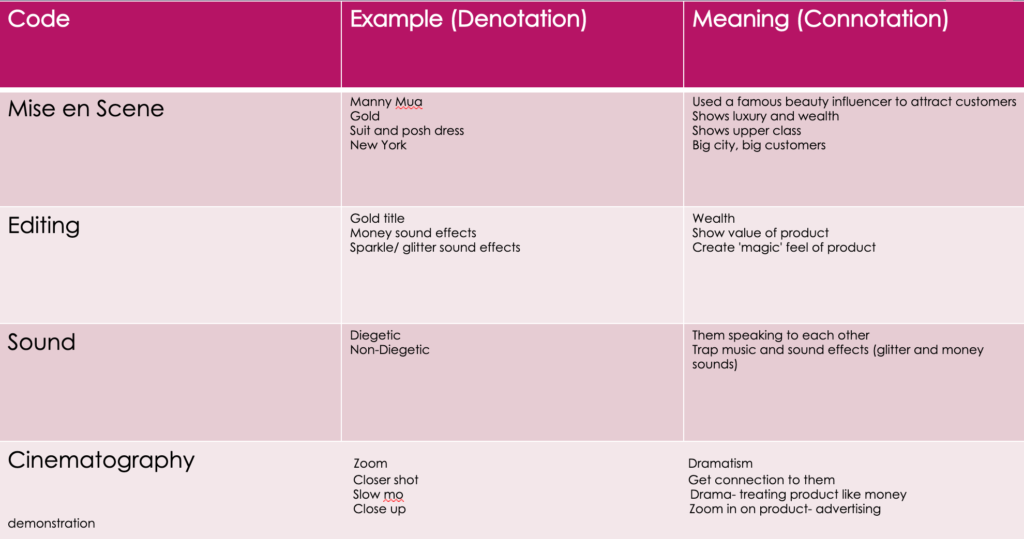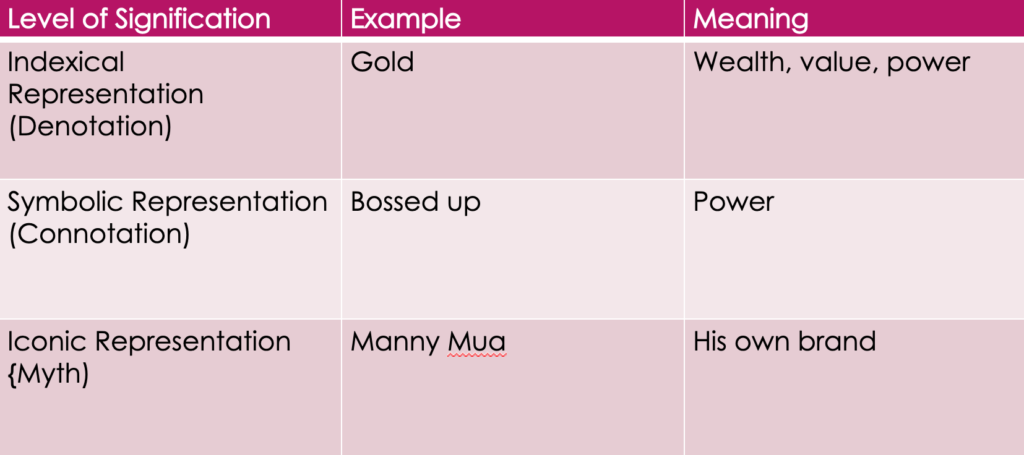



COLONIALISM– the control or governing influence of a nation over a dependent country, territory, or people.
POST COLONIALISM– the academic study of the cultural legacy of colonialism and imperialism, focusing on the human consequences of the control and exploitation of colonised people and their lands.
DIASPORA-the dispersion of a particular culture/ethnic group beyond their originating geographical location.
BAME– a term long used in the UK to refer to black, Asian and minority ethnic people.
DOUBLE CONSCIOUSNESS (GILROY)-a term describing the internal conflict experienced by subordinated groups in an oppressive society.
CULTURAL ABSOLUTISM / RACIAL ESSENTIALISM– a philosophical position that declares a society’s.
CULTURAL SYNCRETISM– is when an aspect of two or more distinct cultures blend together to create a new custom, idea, practice, or philosophy.
ORIENTALISM (SAID)– as defined by Edward Said, is the Western attitude that views Eastern societies as exotic, primitive, and inferior.
CULTURAL APPROPRIATION– is the adoption of an element or elements of one culture by members of another culture. This can be controversial when members of a dominant culture appropriate from disadvantaged minority cultures.
CULTURAL HEGEMONY-the domination of a culturally diverse society by the ruling class who manipulate the culture of that society eg US government
THE PUBLIC SPHERE (HABERMAS)– an area in social life where individuals can come together to freely discuss and identify societal problems, and through that discussion influence political action.
THE ROLE OF PUBLIC SERVICE BROADCASTING IN TERMS OF FAIR REPRESENTATION OF MINORITY GROUPS / INTERESTS– a key issue that is facing PSB (Public Service Broadcasting) is the representation of ethnic minorities as one of the functions of PSB is to reflect the reality of multi-ethnic and multicultural republics.
The public sphere– is an area in social life where individuals can come together to freely discuss and identify societal problems, and through that discussion influence political action.
Jürgen Habermas– is a German philosopher and sociologist in the tradition of critical theory and pragmatism. His work addresses communicative rationality and the public sphere.
Public interest- Anything affecting the rights, health, or finances of the public at large. Public interest is a common concern among citizens in the management and affairs of local, state, and national government
Free Press- a body of book publishers, news media, etc., not controlled or restricted by government censorship in political or ideological matters.
Public control and deregulation
‘media have been hotly debated and public control of media has often been advocated on grounds of public interest’
| Technology and Newspapers | ||
| Production | Distribution | Consumption |
| Computer/laptop Pen and paper Telephone Camera Microphone Licence Computer | Storage Social media influence Target audience Billboards Stacks and shelves | Wifi Headphone Digital device Ability to read |
Who really benefits from a digitally networked society? Big business or individuals? Refer to ‘loop theory’ and the ‘Dunbar number’
Big businesses benefit from a digitally networked society. This is because they are able to reach a wider audience across the world to share their good or service. Businesses can see what you’re interested in by using the loop theory. They will be able to predict what the audience wants next and will be able to release a product to benefit them.
Network Effects describes the phenomenon how the value of a good or service increases as more people start to use that good or service. … This phenomenon was first described by Theodore Vail in 1908.
Cybernetics is applicable when a system being analyzed incorporates a closed signaling loop—originally referred to as a “circular causal” relationship—that is, where action by the system generates some change in its environment and that change is reflected in the system in some manner feedback that triggers a system change. Use predicted data to determine future actions. ‘When we walk why don’t we fall over.’
The theory of Dunbar’s Number posits that 150 is the number of individuals with whom any one person can maintain stable relationships.
Media concentration / Conglomerates– A media conglomerate, media group, or media institution is a company that owns numerous companies involved in mass media enterprises, such as television, radio, publishing, motion pictures, theme parks, or the Internet.
Globalisation (in terms of media ownership)– is the worldwide integration of media through the cross-cultural exchange of ideas
Vertical Integration- The combination in one firm of two or more stages of production normally operated by separate firms.
Horizontal Integration- is the process of a company increasing production of goods or services at the same part of the supply chain
Gatekeepers- Gatekeeping is the process through which information is filtered for dissemination, whether for publication, broadcasting, the Internet, or some other mode of communication.
Regulation- Rules in media. The principal targets of media regulation are the press, radio and television, but may also include film
Deregulation- Media deregulation refers to the process of removing or loosening government restrictions on the ownership of media outlets.
Free market- The free market is an economic system based on supply and demand with little or no government control.
Monopolies- A monopoly refers to when a company and its product offerings dominate a sector or industry.
Mergers- a combination of two things, especially companies, into one.
Cultivation theory– suggests that repeated exposure to television over time can subtly ‘cultivates’ viewers’ perceptions of reality.
Vertical integration– when a company controls more than one stage of the supply chain.
Conglomerate– is a company that owns numerous companies involved in mass media enterprises, such as television, radio, publishing, motion pictures, theme parks, or the Internet.
Synergy– when two or more organisations combine together to create a greater effort than that if they were by themselves.

